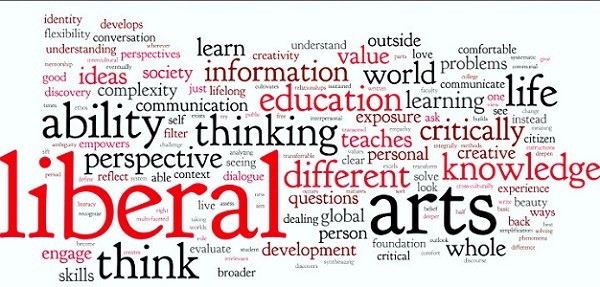Top 20+ Most Useless University Degrees With Uncertain Future
 |
| The Most Useless College Degrees |
| Table of Contents |
The decision of which college degree to pursue is not a simple one. Demands are fluctuating, making it difficult to plan ahead, and this can make some degrees seem more relevant than others.
The good news is that even if you have a degree that is currently considered useless, you can attend a variety of alternative courses, such as bootcamps and workshops, and become specialized within a matter of months.
Unfortunately, some companies still place greater importance on a four-year degree than they do on any additional certifications or degrees you may have earned since graduation.
That's why we at KnowInsiders.com analyzed the benefits and drawbacks of various academic programs so that you don't have to. We also compiled a list of the most pointless degrees of the moment, as well as steps you can take to advance your education and career prospects.
Note: Keep in mind that there is no such thing as a completely useless degree, but that the trends and demand for many different occupations do change.
Top 20+ Most Useless College Degrees In the U.S
Below is a list of more than 20 college degrees that financial analysts and other people who do in-depth market research on different career paths think are useless right now. Don't forget that you should always go after your dreams and find a job you love.
But there are a lot of career options available in different fields, and you should be able to get a degree that lets you focus on more than one field.
But the view below isn't just our opinion; it's based on different financial and job search data that we used to make this list.
Check more: Top 10 College Degrees With The Cheapest Cost In The U.S
1. Dance
Of all the degrees we looked at, dance majors have the lowest average salaries. A bachelor's degree won't help your career much unless you are accepted into Juilliard or a few other prestigious institutions. The keys to becoming a successful professional dancer are perseverance, talent, and networking. Additionally, the majority of dancers reach their peak abilities in their 20s, making it risky to spend four years pursuing a degree that could result in significant debt and uncertain career benefits.
Average salary: $25,453
Payback: 151.28 years
What to do:
Consider switching to a different major because they all offer better returns on investment, unless you are accepted into a highly esteemed dance school. In this manner, you'll graduate from college with a more useful degree in case you need to transition to a new career as you get older or supplement your income as a dancer.
The alternative is to forego college and concentrate instead on perfecting your technique, locating an agent, and going to as many auditions as you can to expand your network.
2. Drama/Theater/Performing Arts
You want to be an actor as your career, but getting a degree in performing arts is not needed to make that dream come true.
Many successful actors will tell you that formal education from theater arts is of utmost importance if you want to pave your path to success and be hired on any role you desire. But, the theater arts are not only saturated, it’s extremely difficult to enroll. With strong influence, a lot of actors use their position to sneak their children into the performing arts. Not to mention bribing and pulled strings to get into a role.
Unless you secure admission to a prestigious institution like the Yale School of Drama, a theatre degree will have little influence on how you’re perceived in the industry. Furthermore, many drama programs don’t adequately cover specific skills and techniques you’ll need in the film and TV business, like motion capture, self-taping, and cold reading.
Earnings: $27,460
Payback: 41.40 years
What to do:
Building your online presence on social media or YouTube is just one of many alternatives to the theater arts. On social media, many businesses find hidden talents, enabling them to launch their careers from scratch. Although there isn't an academic alternative to theater arts, the good news is that you can pursue your interests by studying a different subject while developing your online presence.
| Invest in formal training such as acting classes, production training, and related courses rather than pursuing a four-year college degree. |
3. Music
Many people love music, but getting a degree in music may not be the best move you can make for yourself.
That's because degrees in music aren't typically supportive of careers in music. The price of the degree might not be justified by the types of jobs you end up getting after you graduate.
A different route would be to go for a more financially rewarding degree while still pursuing your musical interests. Future success in music may result in a lucrative, well-paying career for you, but entry into that field typically does not require a college degree.
Earnings: $29,592
Payback: 22.15 years
What to do:
If your music career doesn't work out, getting a college degree can be a good backup plan. However, you should think about choosing a more lucrative major with potential applications outside of the music industry.
The average salary for a general liberal arts degree is $37,070.
Consider focusing solely on your music career for a few years before looking into other options rather than attending college.
Check More: What is Liberal Arts: History, Types, College Degrees and Jobs
4. Advertising
You may believe that advertising is still prevalent and far from dead. While that is true, it is also used through other platforms, including websites, social media, and online advertisements. Displays and billboards were popular in the 20th century. Flyers and coupons were distributed as forms of advertising.
All of that is now done online. More importantly, consumers can influence marketing and advertising trends thanks to the online analytics we are given insight into, ensuring that advertising is solely focused on what consumers want.
You may occasionally see billboards and displays with advertisements that have long since expired. That's because businesses hire various channels to advertise their voices and goods. This doesn't necessarily imply that advertising is dead, but it might call for a fresh strategy.
Sincerely, there are many places online where you can learn a lot of what you would learn from an advertising degree for free. Over time, there have been many changes in the advertising industry.
Studying social media and digital marketing, which can teach you about current advertising techniques like SEO and SEM, would be a wiser course of action.
The best part is that you can start right away without a college degree.
What to do:
You might just need a slightly different approach if you're already pursuing an advertising degree, such as concentrating on social media, search engine optimization (SEO), and other fields.
Most of the time, these disciplines' knowledge can be found for free online, and some courses are not overly expensive or time-consuming to complete. Remember that these disciplines also require you to continually stay abreast of emerging trends and new technologies.
5. Photography
It's extremely uncommon to become a well-known fashion or art photographer or photojournalist. Most photographers end up working in portrait, landscape, or wedding photography, and it's thought that 60% of them leave the industry within the first year. The average salary, if you succeed, is about $19 per hour, and it is significantly less in the short term.
Earnings: $30,810
Payback: 21.04 years
What to do:
Develop your abilities and portfolio, and think about enrolling in a photography apprenticeship program. Additionally, you'll need to master the art of self-promotion. The two main channels through which images find customers are Instagram and word-of-mouth.
To expand your skill set, think about earning a bachelor's degree in design and applied arts (average salary: $38,895).
Another choice is to pursue an associate degree in photography, which will take half as long and cost half as much as a bachelor's.
 Top 10 Most Prestigious School Photography Studios in the World Top 10 Most Prestigious School Photography Studios in the World |
6. Fine and Studio Arts
The success of an artist depends on a variety of things, including training, commitment, talent, and skillful self-promotion. It may be beneficial to attend a prestigious school like the Rhode Island School of Design (RISD), but even there, only the brightest students typically find lasting success in the art world. The disparity in average salaries across disciplines at RISD is also noteworthy: $46,057 for Design and Applied Arts, $50,439 for Architecture, and only $27,562 for Fine/Studio Art.
Earnings: $30,119
Payback: 17.96 years
What to do:
Examine internships with artists, curators, galleries, nonprofits, art publications, and more to gain practical experience in the art world.
Think about majoring in Design and Applied Arts, which offers a more flexible, interdisciplinary skill set than a studio arts degree (average salary: $38,895).
7. Fashion Design
 |
| Fashion Design |
Why is a degree in fashion design regarded as being useless?
Well, it's not easy to find a job in fashion design right out of college. A lot of people who work in the fashion industry begin as interns before moving up to entry-level positions and then moving up the career ladder from there.
The employment prospects after earning a degree in fashion design may leave some students unsatisfied.
The competition among renowned fashion designers has increased significantly, in part because we have created so many clothing items that it is getting increasingly difficult to come up with new concepts.
Let's face it, the same styles and color palettes come back every ten years, and fashion designer jobs are rarely advertised. Starting your brand is a different matter, but it's still difficult because you need solid resources and assets.
What to do:
You must put a lot of effort into your portfolio if you're determined to pursue a career in fashion design. Create a fashion blog, take sewing lessons, and create doll designs. Additionally, you can major in fine arts or even graphic design. Finally, establish contacts with influential individuals and present your ideas to them.
8. Anthropology And Archeology
The first thing that pops up on many people’s minds when they hear the words anthropology or archeology are the popular characters from books and games, Indiana Jones and Lara Croft, the Tomb Raider. However, the path of an archeologist is much more narrow and depends on luck in a great matter.
Nonetheless, both fields are interesting to pursue, but they’re nowhere near easy. Moreover, it requires a lot of luck for one to get a good career opportunity. That may be enough to make these two some of the most useless career paths at the moment, although with a bit of luck, it doesn’t have to be that way.
Earnings: $30,581
Payback: 15.48 years
What to do:
Take some electives in anthropology to suit your interests, but think about majoring in one of these related disciplines instead:
Sociology ($37,718, on average)
Both sociology and anthropology examine human societies, but sociology concentrates on contemporary cultures as opposed to pre-industrial ones.
International/Global Studies ($39,317 on average)
An interdisciplinary program called "Global Studies" examines world issues and shares some cultural themes with anthropology. However, international relations and current global issues are prioritized.
Liberal Arts ($37,070 on average)
An anthropology course may be part of a liberal arts major, which provides a broader education in a variety of humanities and social science fields.
9. Philosophy
With a strong emphasis on thinking, philosophy examines nature, morality, and the human condition.
It appears that society is shifting its attention away from the study of thought and toward learning that is supported by science today.
Although you can teach philosophy at a college or university using your philosophy degree, your job prospects end there.
It can be quite restrictive for philosophy majors in the workplace.
To increase your employment options, you can pursue additional education in fields like law, writing, or another one. However, on top of your investment in a philosophy degree, that will require more time, effort, and money.
Therefore, starting with a different field might be your best bet.
Earnings: $32,116
Payback: 14.04 years
What to do:
Many academic disciplines have their roots in philosophical perspectives. If you don't intend to attend graduate school, think about one of the following majors:
Bioethics/Medical Morality (average income: $48,915)
Students studying bioethics examine moral dilemmas brought on by developments in biology, medicine, and technology. Ethics is a subfield of philosophy.
Political Science ($43,353 on average)
The study of governments, political systems, and the mechanisms influencing policy, power, and public opinion in societies is the main focus of this major, which was formerly known as political philosophy.
Liberal arts (annual salary on average $37,070)
This general major examines a wide range of subjects, including history, literature, philosophy, psychology, and more.
10. Psychology
Psychology frequently ranks among the top 5 most popular majors, yet earnings 3 years after graduation are in the bottom 20% of all programs. This may be partly because the main associated careers – therapist and psychologist – are only accessible with a graduate degree.
| “I don’t know how many years, but I know you need a Ph.D. to make good money when you only need a BS in CS to start getting 6 figs and up.” |
Earnings: $35,412
Payback: 8.50 years
What to do:
Keep in mind that you can earn an advanced psych degree without having a psychology bachelor's degree if you want to become a psychologist. Take into account one of these options based on your career objectives:
Social Work ($36,822 on average)
This major has immediate career application upon graduation; you can become a social worker or earn an accelerated master's in one year to become a therapist, even though it only boasts slightly higher earnings.
Human Resources ($47,348 average annual salary)
Although the knowledge gained in this major is based on psychological principles, it is more immediately useful for a career in human resources after graduation.
Marketing ($50,436 on average)
This flexible business degree is based on psychological theories that are used to understand consumer behavior and decision-making.
Cognitive science ($47,315, on average)
Consider this specialized area of psychology that focuses on brain science if you excel in math and science. Although a graduate degree in cognitive science is necessary, you can make much more money with this specialized bachelor's than with a general psychology degree.
 Top 10+ Most Prestigious Schools for Psychology In the US 2023/2024 Top 10+ Most Prestigious Schools for Psychology In the US 2023/2024 |
11. Health/Medical Preparatory Programs
These courses prepare students for entry into medical schools and other health-related fields like pharmacy and dentistry. However, as long as they take the appropriate prerequisites, pre-med and pre-health students don't need this major.
Earnings: $36,939
Payback: 8.83 years
What to do:
You can major in anything as a pre-med student, but STEM fields are advised. Despite being one of the most popular options, biology may not be the best one, as we'll explain below. Instead, think about chemistry (earnings: $42,795) or physics (earnings: $47,001). If you decide against attending medical school, the following majors provide more hands-on training:
Diagnostic and treatment roles in allied health (average pay: $56,551)
Research in the clinical/medical laboratory (average salary: $59,172)
The average nursing salary is $72,513.
12. Tourism And Hospitality
 |
| Travel and tourism industry |
Let's face it, one of the most well-liked niches is travel. When people start traveling again after a brief decline, airline companies and travel agencies are flooded with cash. As a result, graduates in tourism and hospitality can pursue many lucrative careers. The industry is becoming less stable and is not a dependable source of income.
What to do:
You can study management, business, or marketing and then concentrate on becoming a specialist in the travel and tourism industry. As a result, you have more room for growth and can take on more challenging jobs.
13. Communications
There are many different types of communications, and not all of them are considered useless entirely. However, a wide range of more popular degree paths and small specialization courses offer the majority of the skills needed to land a good communications job.
A university degree is no longer even necessary for traditional jobs like PR manager, journalist, or reporter, especially in the age of remote workers and rapidly expanding social media that many people use to showcase their skills.
What to do:
Consider additional topics of interest while combining a number of other skills you'd like to learn. Although there is a large supply of communication skills, a degree is out of reach for most people. Improve your online presence through social media, launch a YouTube vlogging channel, or even launch a podcast.
14. Education
The field of education is a popular choice for many people, but it is dwindling quickly because anyone can now become a teacher, even with a different kind of degree. What's worse is that many teachers are underpaid and earn relatively little money unless they work in private facilities.
There are many things you can do with a degree in education, but the job opportunities are dwindling and the number of unemployed teachers is rising across the states.
What to do:
There are many options available to you. You can launch your own educational venture and focus on imparting only the skills you deem essential. You can bill for workshops and consultations while still giving your students something of value. You should enroll in a social media management course if you want to concentrate on building your online presence.
15. Criminal Justice
Many kids are inspired by criminal justice to become superheroes and solve crimes as detectives and police officers. However, law enforcement is not what it once was. Also, it's poorly compensated. Many police and law enforcement agencies no longer require new officers to have a degree. In light of this, a criminal justice education is too costly to rank alongside someone with only a high school diploma.
Earnings: $40,070
Payback: 5.39 years
What to do:
You can enroll in a more in-depth educational program, such as political science or law school. If you want to, you can always train to be a detective.
Problem-solving, critical reading, writing, and oral communication are among the essential abilities for law school, according to the American Bar Association. Stronger majors with higher salaries include those listed below:
Analysis of public policy (mean pay: $48,872)
Public Administration ($47,783 on average)
Government and political science (average pay: $43,353)
Applied communication and public relations (average pay: $46,178)
Economics ($60,396 average annual salary)
Corporate/Business Communications (mean pay: $48,297)
 Top 15+ Most Prestigious Colleges for Police Majors in the US Top 15+ Most Prestigious Colleges for Police Majors in the US |
16. Creative Writing
Since when does having a degree in creative writing serve as a gauge of creativity? It doesn't matter whether the asset is used to generate revenue for educational institutions or to grant creative writing students a degree. To write screenplays or nonfiction, you don't need a degree in creative writing. Today, anyone is free to be inventive or creative, so getting a degree will only limit the range of career options available to you.
What to do:
Creative individuals can express themselves through a variety of media thanks to the internet and social media. A blog is one of them, where you can express yourself. You could pursue majors like business, literature, marketing, and others if you still want to go to college.
17. Biology
Biology has the third-lowest earnings of any STEM major, behind zoology and botany, and ranks in the bottom 23% of all majors. The lack of job opportunities after graduation may be a contributing factor. Since a career in science frequently requires graduate education, biology majors may not be equipped with the specialized skills necessary for immediate employment.
Earnings: $36,175
Payback: 8.13 years
What to do:
A practical skill set is typically more likely to be provided by specialized degrees. Consider a biology-related major that is more specialized, such as:
Human Biology ($40,211 in earnings)
Soil Science ($48,043 in earnings)
Biotechnology ($46,436 in earnings)
Computational biology and biomathematics (income: $58,584)
Engineering in Biomedicine ($68,734)
18. Computer Science
One of the most promising STEM fields is computer science, but the field is already saturated. More importantly, there are numerous subfields in computer science that are appealing to students. With fewer job opportunities that will match your interests, earning this degree can be stressful and exhausting. More importantly, many computer science textbooks become outdated as soon as they are published, necessitating careful attention on the part of the instructor.
What to do:
Nearly every field can benefit from computer science. There are numerous free courses available online that enable students to learn new skills in the computer science field, regardless of what other STEM field they are interested in, such as mechanical engineering, electro-engineering, or mathematics.
 Top 15 Most Prestigious Schools for Computer Science in the US 2023/24 Top 15 Most Prestigious Schools for Computer Science in the US 2023/24 |
19. International Studies
You learn about international social, economic, political, and cultural factors in international studies.
Although this degree can teach you a lot and help you understand global issues, jobs in this field don't pay very well, which is why we think it's a pointless degree.
Majors in international studies frequently pursue careers in academia or the government, which can be rewarding and meaningful but aren't always financially rewarding.
20. Film Studies
You can learn about the production of films as well as their history, art, and culture through film studies.
Why is a degree in film studies useless?
Despite the fact that fields like video editing are expanding, you can still work in these fields without a degree. There are many free and inexpensive online resources available where you can learn about film production and editing, such as YouTube, Skillshare, and Udemy.
Therefore, many of the film-related jobs that are hiring today don't require a financial investment in film studies.
21. Child and Family Studies
You will only have a few job options after earning a degree in child and family studies, such as social work or counseling. If you're willing to pursue one of the careers mentioned above, this degree can be useful.
If you want more career options or a job that doesn't require a degree, this degree is useless.
A psychology degree might be a better choice if you want to work in this field because it will give you the skills you need to pursue more lucrative careers.
22. Studying A Language
Although pursuing a language degree can be a rewarding educational path, it is not always necessary to work in linguistics.
And the reason this is one of the most useless degrees is because many linguistics jobs, such as freelance language experts, translators, and related positions, don't require a degree, aside from teaching language as a college professor.
Utilizing the time you would have spent in college to gain experience in this field might make more sense.
23. Ethnic Studies
History, sociology, literature, and other disciplines can all be consulted in ethnic studies. For those who want to work in a field that combats social injustice, oppression, and inequality, it can be a personally fulfilling and rewarding major.
Finding work requiring this degree can be difficult, though, unless you want to become a professor of ethnic studies.
Final Thoughts
In a perfect world, all college degrees would lead to successful careers, and the money spent on higher education would be repaid many times over once graduates hit the job market. That isn't always the case, though.
People often question the worth of a four-year degree because many popular majors are associated with low average salaries after graduation, a lack of practical application, or poor job prospects. The value of a college education is called into question when applied to some occupations, such as those in the arts, where a bachelor's degree may not lead to better job prospects.
Choosing one of the worst college majors above could leave you with a lot of debt and little hope of repaying it in the future, but your personal goals and interests are important considerations.
 30 Highest-Paying Jobs In Miami Without A College Degree 30 Highest-Paying Jobs In Miami Without A College Degree Miami is a coastal metropolis in Miami-Dade County in southeastern Florida, United States, and one of the most well-known destinations for career advancement. Take a ... |
 Top 30 Highest-Paying Jobs in Texas Without a College Degree Top 30 Highest-Paying Jobs in Texas Without a College Degree Having a degree increases your chances of landing a good job, but it's still possible to find work without one. Below is a list of ... |
 What is Liberal Arts: History, Types, College Degrees and Jobs What is Liberal Arts: History, Types, College Degrees and Jobs Have you ever been curious about what it would be like to study "Liberal Arts," which is one of the oldest topics in the world? |
 Top 9 College Majors That Makes The Most Millionaires In The World Top 9 College Majors That Makes The Most Millionaires In The World KnowInsiders explores the top disciplines and college degrees that have produced the most millionaires and billionaires in the world. Will you become rich by choosing ... |























